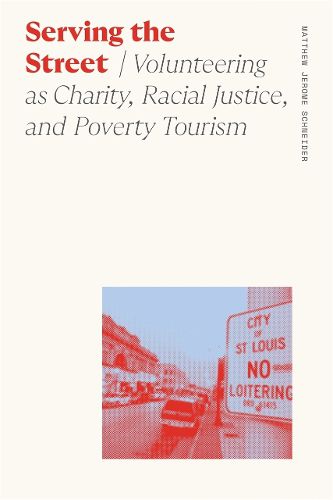Readings Newsletter
Become a Readings Member to make your shopping experience even easier.
Sign in or sign up for free!
You’re not far away from qualifying for FREE standard shipping within Australia
You’ve qualified for FREE standard shipping within Australia
The cart is loading…






Volunteering is typically thought of as an act of altruism, yet there are power dynamics embedded in volunteer-service recipient relationships, especially when volunteers operate from privileged positions. Following six grassroots homeless service organizations in St. Louis, Missouri, Matthew Schneider unpacks the tensions between race, class, urban space, and volunteerism. Volunteers are well intentioned and provide vital, life-saving services. However, Serving the Street explores how many of these same volunteer groups helped to reproduce racialized stigma and stereotypes about poverty, homelessness, and marginal urban space through volunteer practices that bordered on "poverty tourism." If our goal is to make communities more inclusive and equitable, this book suggests a need for greater self-reflection, even among well-intentioned, social-justice-oriented volunteers.
$9.00 standard shipping within Australia
FREE standard shipping within Australia for orders over $100.00
Express & International shipping calculated at checkout
Stock availability can be subject to change without notice. We recommend calling the shop or contacting our online team to check availability of low stock items. Please see our Shopping Online page for more details.
Volunteering is typically thought of as an act of altruism, yet there are power dynamics embedded in volunteer-service recipient relationships, especially when volunteers operate from privileged positions. Following six grassroots homeless service organizations in St. Louis, Missouri, Matthew Schneider unpacks the tensions between race, class, urban space, and volunteerism. Volunteers are well intentioned and provide vital, life-saving services. However, Serving the Street explores how many of these same volunteer groups helped to reproduce racialized stigma and stereotypes about poverty, homelessness, and marginal urban space through volunteer practices that bordered on "poverty tourism." If our goal is to make communities more inclusive and equitable, this book suggests a need for greater self-reflection, even among well-intentioned, social-justice-oriented volunteers.